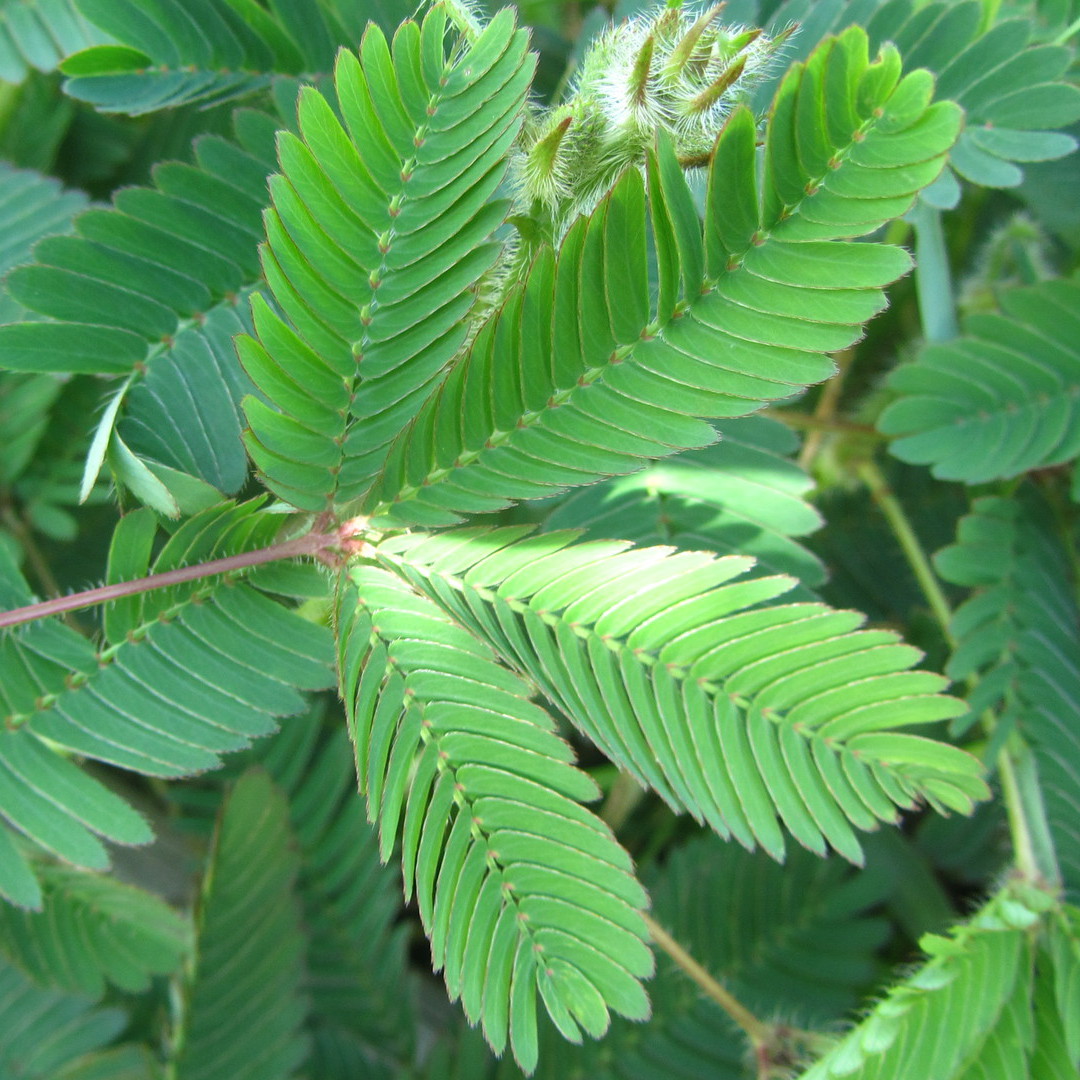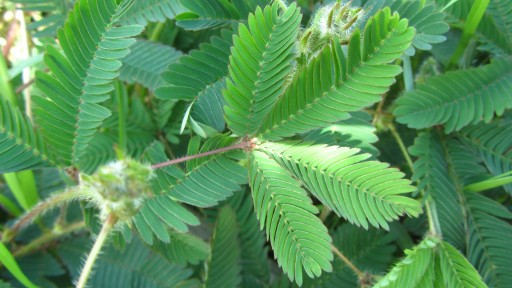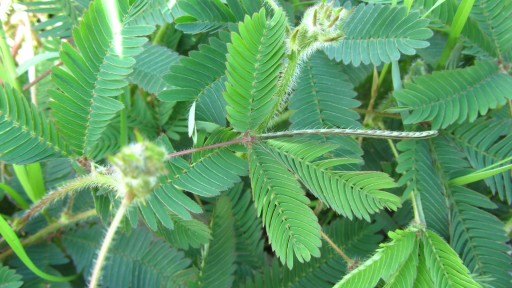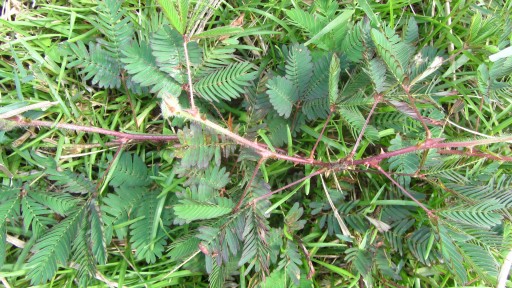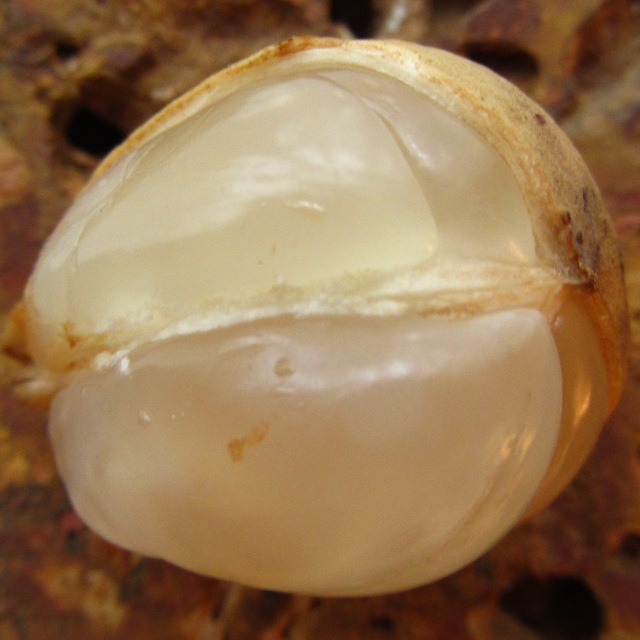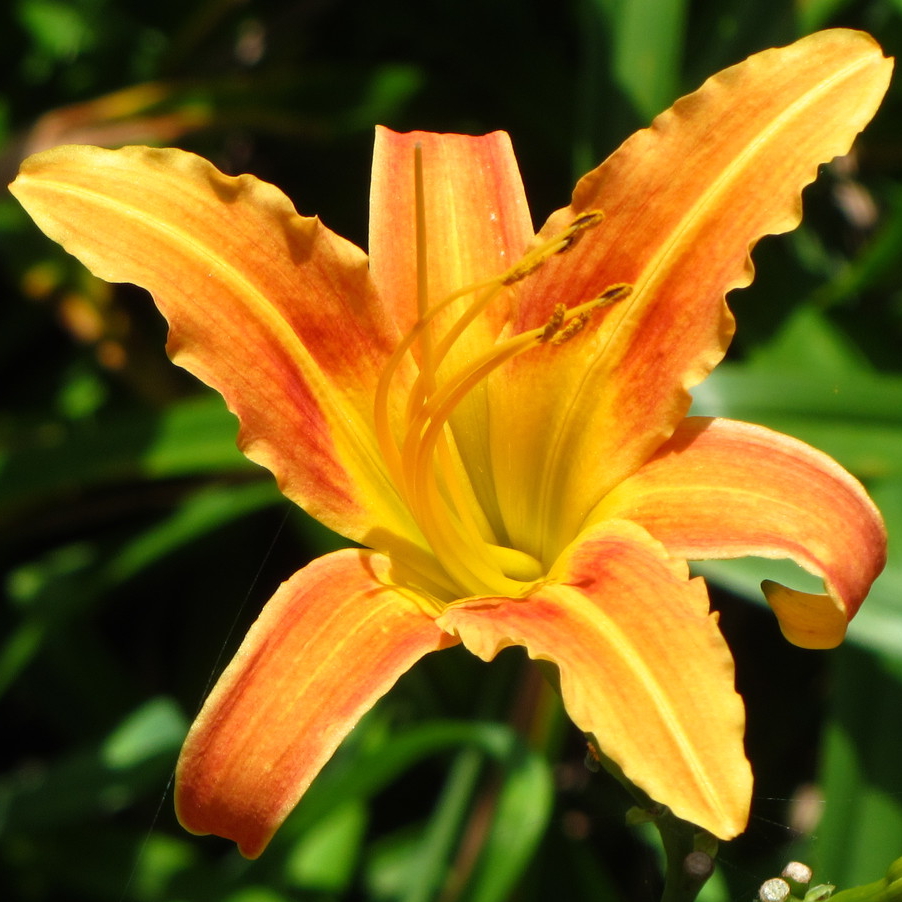Seeing a wild animal advancing rapidly through its habitat is nothing unusual. But watching a plant perform rapid evasive movement, that’s truly unforgettable. The sensitive mimosa (Mimosa pudica), also known as “touch-me-not”, is an astonishing plant in the sense that it will literally disappear in front of your eyes within seconds after coming into physical contact with it. The speed at which the herb folds its two rows of small leaves at a slightest touch is unparallelled in nature. It has never been reliably explained why this perennial, native to tropical Central and South America, evolved in this fashion, but its curious defensive mechanism has clearly helped it survive to this day.
Under normal circumstances the small leaves of the mimosa plant are spread as demonstrated on the picture above. But as soon as any of them is stimulated by a physical touch, they will immediately fold, triggering a chain reaction in several nearby pairs or even the entire petiole. This is illustrated on the photograph below; I gently brushed my fingers against the end of the “2 o’clock” petiole which then promptly closed up its two rows of leaves and then collapsed slightly, almost vanishing from sight. If I touched or shook the stem, all four petioles would close up in seconds. Photographing such plant would be pointless as it would be barely visible in the presence of all the other vegetation in its vicinity.
This low creeping herb also closes its leaves at night and in windy weather conditions. If the initial stimulus is no longer present it reopens the leaves after a few minutes. The energy needed for this unusual action is apparently produced by the release of chemicals which force the removal of water from the plant’s cells. This results in closure of the leaves and collapse of the petioles. The sensitive mimosa is widely cultivated for its curiosity value and has been listed as an invasive species in many tropical regions of the world, including parts of Asia and several Pacific ocean islands. Here in southern Taiwan it grows freely in grasslands and meadows.
(This page has been viewed 1114 times.)
